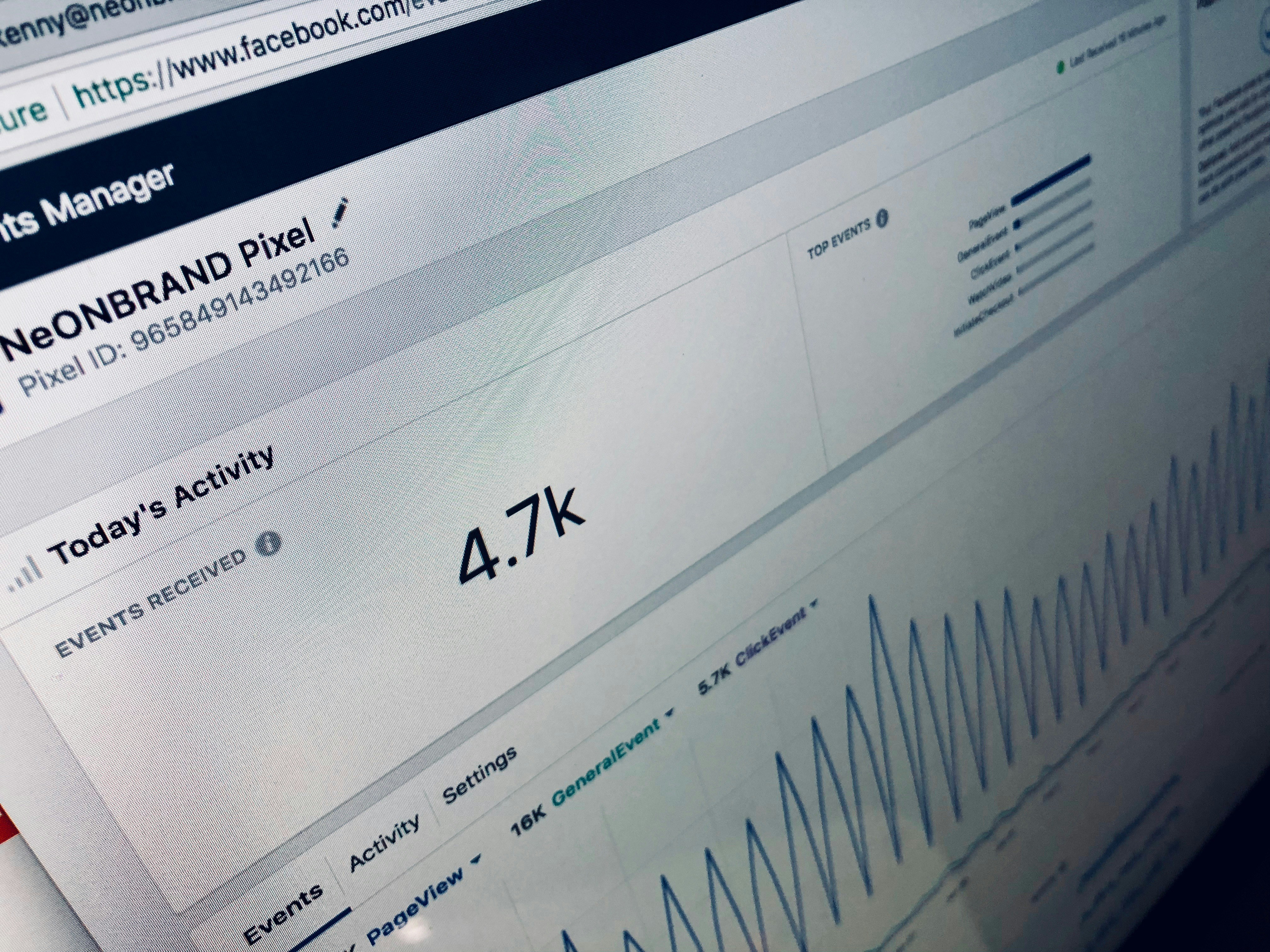How a Small E-commerce Store Used AI to Boost Sales by 30%: A Complete Case Study
How a Small E-commerce Store Used AI to Boost Sales by 30%: A Complete Case Study
Sarah Chen was drowning in data but starving for insights. Her boutique clothing store had decent traffic but abysmal conversion rates. Then she discovered AI marketing. This case study reveals exactly how she transformed her business—and how you can too.
The Struggle: When Data Overwhelms
Sarah's story is familiar to many e-commerce entrepreneurs who find themselves in the paradoxical situation of having abundant data but lacking meaningful insights to drive business decisions. She had decent traffic with 10,000 monthly visitors but pathetic conversion rates of just 1.2%—far below the industry average of 2.5-3%. Her marketing was generic, sending the same email blasts to everyone without personalization. She lacked insights into why customers abandoned her site and spent countless hours on manual processes that could be automated. Sound familiar? You're not alone. According to Salesforce, 79% of marketing leads never convert to sales. The problem isn't lack of data—it's lack of actionable insights that can turn that data into revenue. This data paralysis affects countless businesses that collect extensive analytics but fail to extract the strategic intelligence needed to optimize their operations and marketing efforts. Sarah's experience highlights a critical challenge in modern e-commerce: the gap between data collection and data utilization that prevents businesses from achieving their full potential in competitive online marketplaces.
The Turning Point: Discovering AI Marketing
Sarah attended a local business conference where she learned about AI-powered marketing tools that were revolutionizing how businesses understand and engage with their customers. Initially skeptical ("AI is for big companies," she thought), she decided to experiment with a small budget of $97/month for an AI marketing suite that promised to analyze customer behavior and automate personalized marketing campaigns. The results were nothing short of transformative, proving that AI marketing isn't just for enterprises—it's accessible and effective for small businesses willing to embrace change and learn from data-driven insights. This pivotal moment marked Sarah's transition from traditional marketing methods to a sophisticated, AI-enhanced approach that would fundamentally change how she operated her business. The initial investment proved to be a catalyst for comprehensive business transformation, demonstrating how even small businesses can leverage cutting-edge technology to compete with larger players in the digital marketplace.
The AI Marketing Stack That Changed Everything
Predictive Customer Analytics became Sarah's foundation for understanding her audience. The AI analyzed browsing behavior patterns, purchase history, cart abandonment triggers, time spent on product pages, and device and location data. The result was identifying her highest-value customers before they even made a purchase. "The AI knew which visitors were likely to buy before they did," Sarah explains, allowing her to focus marketing efforts where they would have the most impact.
Personalized Product Recommendations replaced generic "You might also like" suggestions with hyper-personalized options based on individual browsing history, similar customers' preferences, seasonal trends, and real-time inventory availability. This personalization drove an immediate impact: average order value increased by 25% within the first month, as customers found products that truly matched their interests and needs.
AI-Powered Email Campaigns transformed Sarah's manual email marketing into an automated, intelligent system that segments audiences automatically, sends personalized content based on behavior, optimizes send times for each recipient, and A/B tests subject lines and content. The before-and-after results were dramatic: open rates jumped from 15% to 35%, and click rates improved from 2% to 8%, dramatically increasing engagement and conversions.
Dynamic Pricing Optimization gave Sarah a competitive edge by analyzing competitor pricing, demand patterns, and inventory levels to suggest optimal prices for each product. The result was an 18% average price increase without losing customers, as the AI found the sweet spot where profitability and customer satisfaction intersected.
The Numbers Don't Lie: Sarah's 6-Month Transformation
| Metric | Before AI | After AI | Improvement |
|---|---|---|---|
| Monthly Revenue | $12,500 | $16,250 | +30% |
| Conversion Rate | 1.2% | 2.8% | +133% |
| Customer Retention | 25% | 45% | +80% |
| Average Order Value | $65 | $81 | +25% |
| Marketing Cost | $2,400/month | $960/month | -60% |
| Customer Satisfaction | 3.8 stars | 4.8 stars | +26% |
The Secret Sauce: Implementation Strategy
Sarah didn't implement everything at once. Her smart, phased approach started with analytics first in month 1, focusing on understanding her audience deeply. "You can't personalize without knowing who your customers are," she advises. Month 2 brought personalization with product recommendations and basic features. Months 3-4 added automation through email campaigns and dynamic pricing. The final phase, months 5-6, focused on optimization using AI insights to continuously refine strategies and maximize results.
Common Mistakes to Avoid
Sarah recommends starting small and testing one AI feature at a time to ensure it works for your specific business before investing more, rather than attempting to implement everything simultaneously which can lead to overwhelm and poor results. Privacy concerns are real, so ensure your AI tools comply with GDPR and CCPA—transparency builds trust with customers and protects your business from regulatory penalties. Remember that AI isn't magic; "AI gives you data, but you still need to make smart decisions," Sarah warns, emphasizing that technology should augment rather than replace human judgment. Use AI insights as a guide, not a crutch, and always apply human judgment to interpret results and make strategic choices that align with your business goals and customer needs. Avoid the common pitfall of assuming AI will solve all your problems without proper implementation and oversight. Take the time to understand how AI works in your specific industry context and customize its application to your unique business requirements.
How Much Does AI Marketing Cost?
Sarah's total investment was remarkably affordable: $97/month for the AI marketing suite, $500 one-time for consultation, and $200 for staff training. The total first-year cost was around $2,000, delivering an 800% ROI. "The AI paid for itself within two months," Sarah reports, proving that AI marketing can be both accessible and highly profitable for small businesses. This cost-effectiveness makes AI marketing accessible to businesses of all sizes, not just large enterprises with substantial budgets. The subscription model allows for predictable expenses and scalability as your business grows. Many AI marketing platforms offer tiered pricing that grows with your needs, ensuring you only pay for the features and capacity you require. The key is focusing on ROI rather than upfront costs, as the revenue increases typically far exceed the investment in AI tools and training.
Is AI Marketing Right for Your Business?
AI marketing works best for businesses with consistent web traffic (500+ monthly visitors), e-commerce or lead generation focus, an email subscriber list, and willingness to act on data insights. If you're not ready for AI, start with basics like implementing Google Analytics properly, building an email list, creating customer personas manually, and testing A/B campaigns. These foundational steps will prepare you for AI adoption when you're ready to scale.
Sarah's Advice for Fellow Entrepreneurs
"AI isn't about replacing human creativity—it's about amplifying it. Use AI for the repetitive stuff so you can focus on what makes your business unique: building relationships and creating amazing products."
— Sarah Chen, Boutique Owner
Ready to Transform Your E-commerce Business?
Sarah's story proves that AI marketing isn't just for tech giants. Small businesses can leverage these powerful tools to compete effectively and grow rapidly. The key is starting with the right strategy, implementing gradually, and committing to data-driven decision making.
Next Steps:
- Download our free AI Marketing Readiness Checklist
- Schedule a free consultation to see if AI marketing fits your business
- Read our guide to choosing AI marketing tools
Have you tried AI marketing in your business? What were your results? Share your experience in the comments below!
Disclaimer: Results may vary based on your industry, implementation, and market conditions. This case study represents one business owner's experience and is not guaranteed.











